September 29, 2020
I've always thought it a bit interesting that the lethal dose of caffeine for most people is about 10 grams, that toxic effects (like seizures) can be observed with consumption of around just 1,200 milligrams of caffeine (which is actually not that much considering that a big ol' cup of Joe can contain up to 200mg of caffeine), yet, on tons of supplement and bulk foods websites, including Amazon, one can buy one bottle of bulk caffeine capsules that contain enough caffeine to KILL ten people.
Crazy, huh?
Now don't get me wrong, I'm totally not against caffeine consumption. The stuff can literally be a superfood for the brain, performance, fat loss, and beyond. Heck, I consume caffeine in one form or another just about every day, with just a few slight but notable exceptions, which you'll read about in this article.
But, as you'll also learn in this article, caffeine is not something to just casually mess around with while assuming it's not significantly, and sometimes deleteriously, affecting your neurotransmitters, hormones, and other precious elements of your nervous system (including most of your sleep architecture and circadian rhythmicity) because it just is. That fact can simply not be denied, and knowing how to mitigate risk is something you need to be aware of.
So, what do you do?
Drink coffee for all the health benefits therein, and keep your fingers crossed the caffeine isn't going to be an issue?
Swear off coffee altogether?
Switch to decaf, but sacrifice flavor and enjoyment due to the bland, stale, chemical-laden nature of most decaf?
In today's article, you'll discover the answers to these questions, along with some of the many benefits of coffee (including decaf), how caffeine affects your body and why you should periodically take a break from it, how to identify the cleanest decaf coffee out there, and much more.
Benefits Of Coffee
The benefits of good, high-quality, antioxidant-rich coffee—emphasis on good because there are a lot of mycotoxin- and pesticide-laden coffee beans out there that will do you a lot more harm than good—are well-researched and include:
- Increased longevity.
- Enhanced glycogen restoration after a workout.
- Increased fatty acid utilization during a workout.
- Increased levels of dopamine, the “feel-good” neurotransmitter.
- Reduced risk of diabetes.
- May protect against cirrhosis and liver and colon cancers.
- Can reduce the risk of death from all causes, including heart disease.
- Delayed onset of Alzheimer’s.
- And more.
Add to this list the fact that coffee contains essential nutrients such as vitamin B2, B3, B5, manganese, potassium, and magnesium, and you can see that there are many reasons to include a cup in your morning routine. Just check out my podcast “The Ultimate Coffee Podcast: Everything You Need To Know About Coffee Health, Including The Latest Lab Results On Which Coffee Is The Healthiest.” if you'd like to take a deeper dive into some of these benefits.
For the vast, general population of healthy adults, moderate caffeine intake is not associated with commonly cited adverse effects, and surprisingly, the health benefits are linearly correlated with the amount of coffee you drink. Acceptable caffeine levels for most adults with no major health issues come out to about 4-5 mg per kg of body weight—with about 400mg per day being the max. (This rounds out to be approximately 4-5 cups of brewed coffee, although rumor is that the philosopher Voltaire consumed more than 60 cups per day!)
Despite all of the good things coffee can do for you, as I found out in my twenties, it’s easy to become addicted to, and dependent on, caffeine. Eventually, I couldn’t even function in the morning until I’d sucked down a 20-oz mug o’ Joe…minimum. I'm sure most folks out there could relate, so let's dive into exactly how coffee and caffeine work in your body, how a caffeine addiction comes to, and how to steer clear of some of the negative effects caffeine can have on your body.
How Caffeine Affects Your Body
My favorite way to get caffeine when I am actually consuming it is via a cup of rich, black coffee. I give you the entire history of my experience with coffee (including how I literally grew up in a coffee-roasting family) in the article “23 Years Of Suckin’ Down Coffee: Tips, Tricks & Hacks I’ve Discovered For Getting The Most Out Of One Of The Safest Superfoods That Exists.” I worked really hard on that article and it's well worth a read if you really want to wrap your head around the myriad of benefits derived from regular coffee consumption.
In a nutshell, when I was about 11, my dad decided to get into the coffee business. He bought a vintage Diedrich coffee roaster for the price of a small car and taught himself how to roast coffee, traveled the county hunting down the best beans he could find, and fulfilled his dream of launching a fresh-roasted coffee company with a focus on quality, sustainability, and extreme taste satisfaction.
Fast forward to today, and because of my early exposure to coffee, I’ve tried just about every type of coffee that exists in the health world and beyond—including smart drug-infused coffees, superfood-infused coffee powders, and any variation of coffee you can shake a stick at.
And I'm not alone. Caffeine is America's—and arguably the world's—most popular drug, by far.
Whether from coffee, energy drinks, gums, candies, or bars, 90 percent of Americans consume caffeine every single day. More than half of all American adults consume more than 300 milligrams of caffeine every day. Though recommendations by the U.S. Food and Drug Administration (FDA) and the American Medical Association (AMA) are to consider 300 milligrams (around two cups of coffee) the upper limit of a moderate daily dose, roughly 20 to 30 percent of Americans consume more than 600 milligrams on any given day (easy math: around four cups of coffee) every day of the year, backing up the fact that coffee consumption can very likely be categorized as an addiction. If you feel as though you cannot function in the morning without a cup of coffee to kick-start the day, you likely fall into the category of someone who has experienced such addiction, and kicking a caffeine habit can be quite difficult.
So is this amount of caffeine consumption an issue? Considering what you've already read in the introduction about the surprisingly low toxicity of coffee, I would argue that it definitely is.
I mean, c'mon folks: It's a drug.
Caffeine falls into the category of a chemical stimulant scientifically known as trimethylxanthine, with a chemical formula of C8H10N4O2. With this formula, caffeine shares the traits of many “harder” illicit amphetamine-based drugs such as cocaine and heroin, including the ability to cause significant addiction. In its pure form, caffeine is a white crystalline bitter powder used in medical settings to stimulate the heart and serve as a mild diuretic, increasing urine production to flush fluid out of the body.
And just like other drugs, caffeine consumption is not completely devoid of adverse effects. Because it is both water- and fat-soluble, caffeine can easily cross your blood-brain barrier. As you dump more caffeine into your body, your brain cells actually grow an excess of receptors for an inhibitory neurotransmitter called adenosine. Adenosine causes feelings of tiredness and accumulates in your adenosine receptors over the course of the day, but it isn't the only thing that can bind to your adenosine receptors.
Caffeine, with a structure that closely resembles that of adenosine, also easily fits into your brain’s adenosine receptors. With its receptors constantly plugged up by caffeine, adenosine can no longer bind to them to make you feel tired. Adenosine inhibition also increases the activity of dopamine and glutamate—two feel-good, alertness-increasing, brain-stimulating compounds.
Sounds great, right?
Not so fast. Unfortunately, your body responds to its adenosine receptors being infiltrated by caffeine by creating more and more adenosine receptors, so you eventually need more and more caffeine to block the feelings of tiredness, creating the vicious cycle caffeine addicts are all too familiar with.
See, to a nerve cell, caffeine looks just like adenosine, but caffeine doesn't slow down cellular activity like adenosine does. As a result, the nerve cell can no longer identify adenosine because caffeine is taking up all the receptors that adenosine would normally bind to. So instead of slowing down, the nerve cells speed up. Make sense?
But because it blocks adenosine's ability to open vessels, caffeine also causes your brain's blood vessels to constrict. This is actually why some headache medicines (like Anacin) contain caffeine. The caffeine constricts blood vessels in the brain and that can help to stop a vascular headache.
Caffeine also causes increased neuron firing in your brain. Your pituitary gland senses this activity and releases hormones that tell your adrenal glands to produce adrenaline (AKA epinephrine), a “fight and flight” hormone, which has a number of effects on your body, including:
- Dilated pupils
- Open airways
- Increased heart rate
- High blood pressure
- Low blood flow to the gut
- Release of sugar by the liver
- Tight muscles
This is why, after consuming a cup of coffee, your hands can get cold, your muscles get tense, you feel more excited or jittery, and your heart beats faster.
But adenosine isn't the only neurotransmitter affected by caffeine. Caffeine also affects dopamine, a neurotransmitter that activates pleasure centers in certain parts of your brain. Heroin and cocaine do the same thing by slowing down the rate of dopamine reabsorption. This dopamine connection contributes heavily to caffeine addiction.
Perhaps the most important potential problem with caffeine is its effect on sleep quality since the half-life of caffeine is about six hours in most people. That means that drinking a cup of coffee containing 200 milligrams of caffeine at 3 pm still leaves around 100 milligrams of caffeine in your system at 9 pm. You'll be able to fall asleep, but because so much adenosine is blocked, it won't be high-quality deep sleep. When this cycle continues day after day, a deep sleep deficit accrues. Your body doesn't heal as readily, nor does learning or memory consolidation occur. This means the sleep you do actually feel like you are getting is not high-quality sleep, creating a vicious cycle in which you crave another cup of caffeinated coffee the next morning.
So ultimately, caffeine blocks adenosine receptors so you feel alert, which significantly impacts sleep quality later in the evening, and it does this whether you are a “fast” or a “slow” caffeine metabolizer. In addition, it injects adrenaline into your bloodstream to give you a boost, while manipulating dopamine production to make you feel good, and also feel addicted.
Then, once caffeine-induced adrenaline wears off, many people experience withdrawal symptoms including headaches, fatigue, and depression, requiring yet another cup of coffee (or energy drink) to get the adrenaline flowing again. This leaves your body in a state of emergency with a lack of focus, jitteriness, and irritability all day long, which isn't quite a healthy way to go about living every day of the year.
The good news is that it's fairly simple to kick a caffeine habit and “reset” your adenosine receptors while getting rid of your addiction to the high amounts of dopamine and epinephrine constantly flooding your system.
To do this…
….you only need to get through about 7-12 days of caffeine avoidance…
..which is exactly why I take a week-long break from coffee about once every one to two months—and highly recommend that you do the same.
Yes, you can simply steer clear of all coffee during this week, but since most of the health benefits of coffee having nothing to do with caffeine, you can simply swap your caffeinated coffee for some high-quality, toxin-free decaf coffee during your weeklong caffeine reset. Doing so allows you to also tap into the wonderful aroma, taste, social benefits, and bowel-moving glory of a hot morning beverage…without exhausting your neurotransmitters.
Not All Decaf Coffee Is Created Equal
Now, it's important to understand that not all decaf coffee is created equally, so if you're going to use the same strategy I do, you'll need to proceed with caution.
If you already shop for decaf coffee, you are probably familiar with or have heard of Swiss Water Process (SWP), and seeing this stamped on a coffee label is a good indicator that you're most likely getting a high-quality decaffeinated product.
Other, more common caffeine-extraction methods that comprise the bulk of the type of decaf you get at most grocery stores and coffeeshops involve the use of heavy, harmful chemicals—one of which, methylene chloride, can also be used as a paint stripper and degreaser (perfect for those who love 3-in-1 deals, but not ideal for those looking for high-quality, longevity-enhancing, flavorful morning brews). Unfortunately, these decaf coffees, although containing less caffeine than their regular counterparts, still contain significant amounts of caffeine. For example, some decaf coffees can have up to 15 milligrams in an 8-ounce cup, which is enough caffeine to disrupt sleep and also keep your adenosine receptors from resetting.
SWP, the Swiss process mentioned above, involves introducing a green coffee extract (GCE) to a mix of water and green coffee beans. Caffeine begins to flow out of the beans until there’s an equal amount of soluble compounds in the GCE and in the coffee beans. Then, water is run through carbon filters to remove the caffeine, and the GCE-rich water is restored and recycled over a 10-hour period until nearly all of the caffeine has been removed from the coffee. So this is both a more natural and more complete form of decaffeinating coffee.
Another process—one that you're likely less familiar with, but one I've been studying up on quite a bit lately—is Mountain Water Processing (MWP). MWP uses—you guessed it—pure mountain water and also removes nearly all of the caffeine. While MWP is nearly identical to SWP in that it maintains the beans’ original components and elements of flavor, I have found that MWP gives you a delicious, aromatic, coffee with almost zero caffeine and a flavor profile that goes above and beyond that of SWP.
When shopping for decaf coffee in the past, I've always looked for a high-quality, organic roast that uses SWP to remove caffeine. This has served me well in weeding through the options to wind up with something that more closely resembles coffee in its natural state (and not some Frankencoffee that could double as a paint thinner). Now that I've discovered MWP, I've got an even better option…
…and, as of very recently, because of everything new I've discovered about decaf, I have decided to bring straight to you a new, unique, and incredibly clean decaf coffee.
That's right: Fresh from our high-end roasters and Kion headquarters in Boulder, Colorado, Kion Decaf Coffee is finally here.
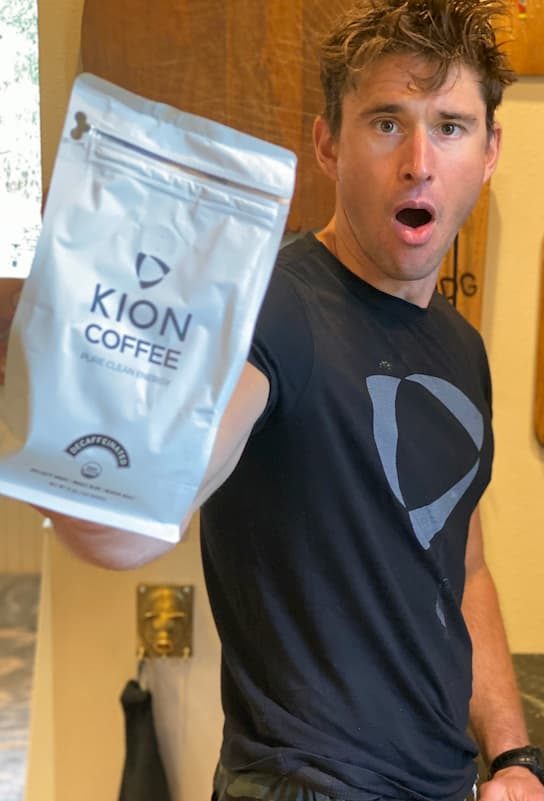 Kion Decaf Coffee—just like its delicious and wickedly popular caffeinated predecessor—uses specialty-grade coffee beans and the absolute highest standards of testing to bring you beans that are 100% organic and free of mold and mycotoxins.
Kion Decaf Coffee—just like its delicious and wickedly popular caffeinated predecessor—uses specialty-grade coffee beans and the absolute highest standards of testing to bring you beans that are 100% organic and free of mold and mycotoxins.
Decaffeinated using the MWP you just learned about, Kion Decaf Coffee offers a clean, pure, “can't-even-tell-it's-decaf” taste that’s the result of our using only the top, highest-quality 3% of beans grown worldwide, along with our strict roasting protocol that minimized acrylamide and maximizes antioxidants. Professional cuppers have described Kion Decaf Coffee as…
“Balanced, with a very clean flavor. Medium body, smooth and rich. Sweet apple, marzipan, baking spices. As the cup cools, a nice dark chocolate character emerges.”
Because Kion Decaf Coffee is a medium roast, you can use a variety of brewing methods. It’s great as espresso, French press, or pour-over. (Here’s a handy article that will help you find your perfect brewing method.)
Better yet, you get to switch to decaf every month or two (I personally go through one bag of decaf for every three bags of regular coffee) without sacrificing your flavor or enjoyment.
Summary
So to all of my fellow coffee lovers out there: You can now rejoice in knowing that your beloved morning pick-me-up has a hallowed place in promoting total body health.
And with delicious decaf options like Kion Decaf Coffee, you can also now continue enjoying the health benefits (and the taste) of coffee—while giving your adenosine receptors and nervous system a precious break every now and then.
Again, the next time you need a break from caffeine, or if you feel like you’ve been getting too many jitters or need to resensitize yourself to caffeine, just replace your regular brews with Kion Decaf Coffee for a week or so, once per month or once every couple of months.
For more on coffee, you can check out some of my previous podcasts and articles:
- The Ultimate Coffee Podcast: Everything You Need To Know About Coffee Health, Including The Latest Lab Results On Which Coffee Is The Healthiest.
- Is It Healthy To Put Fat In Your Coffee? (And My 3 Favorite Fatty Coffee Recipes)
- Is Cholesterol In Coffee Bad (& How To Make Your Coffee As Healthy As Possible), What To Do About Low Progesterone, How Carbs Impact Your Immune System & Much More!
- 63 Cups Of Coffee A Day & More: Five Simple Things You Can Do to Live a Longer, Healthier Life.
- 23 Years Of Suckin’ Down Coffee: Tips, Tricks & Hacks I’ve Discovered For Getting The Most Out Of One Of The Safest Superfoods That Exists.
- The Kion Coffee Enema: Everything You’ve Always Wanted To Know About Coffee Enemas (But Were Afraid To Ask).
As an added bonus, below you'll find two of my favorite coffee recipes—one hot (for those chilly, rainy days) and one cold (for a pre-workout energy boost or a hot day cognitive-enhancing treat):
Coffee-Cacao Sipper
Prepare yourself for an intense chocolate-sipping experience with a hint of java. Into a blender, combine:
-
- 12-16 oz. hot decaf or regular coffee
- 2 tablespoons organic cacao powder
- 1 tablespoon coconut butter, or better yet, coconut manna
- 1 tablespoon almond butter
- 1 teaspoon organic Ceylon cinnamon (this helps to control blood sugar)
- 1 dropperful of organic butterscotch toffee or vanilla stevia
- 1 scoop of collagen
- Optional: 1 pinch cardamom or rosemary (Blending coffee with these types of compounds enhances its free radical-scavenging and antioxidant properties).
Place all ingredients in blender and purée until smooth, adding water to blend as necessary. Oh, and be careful when you open the lid. This stuff can get a bit…”fizzy.”
Coffee Frosty
This one is a bit more like a milkshake-coffee combo with a bit of a superfood crunch you add in at the end. Into your blender, add the following ingredients:
-
- 8-12 oz. chilled decaf or regular coffee
- 4 oz full fat organic BPA-free coconut milk, or better yet, coconut cream
- 2 tablespoons organic cacao powder
- 1 teaspoon organic Ceylon cinnamon (this helps to control blood sugar)
- 1 dropperful of organic butterscotch toffee or vanilla stevia
After blending, stir in your choice for some added texture—a Kion Bar, cacao nibs, unsweetened coconut flakes, or all three!
What about you? Do you already take monthly breaks from caffeine? Have any of your own coffee recipes to share? Let me know in the comments section how caffeine breaks have worked for you, along with any comments, thoughts, or questions you may have.

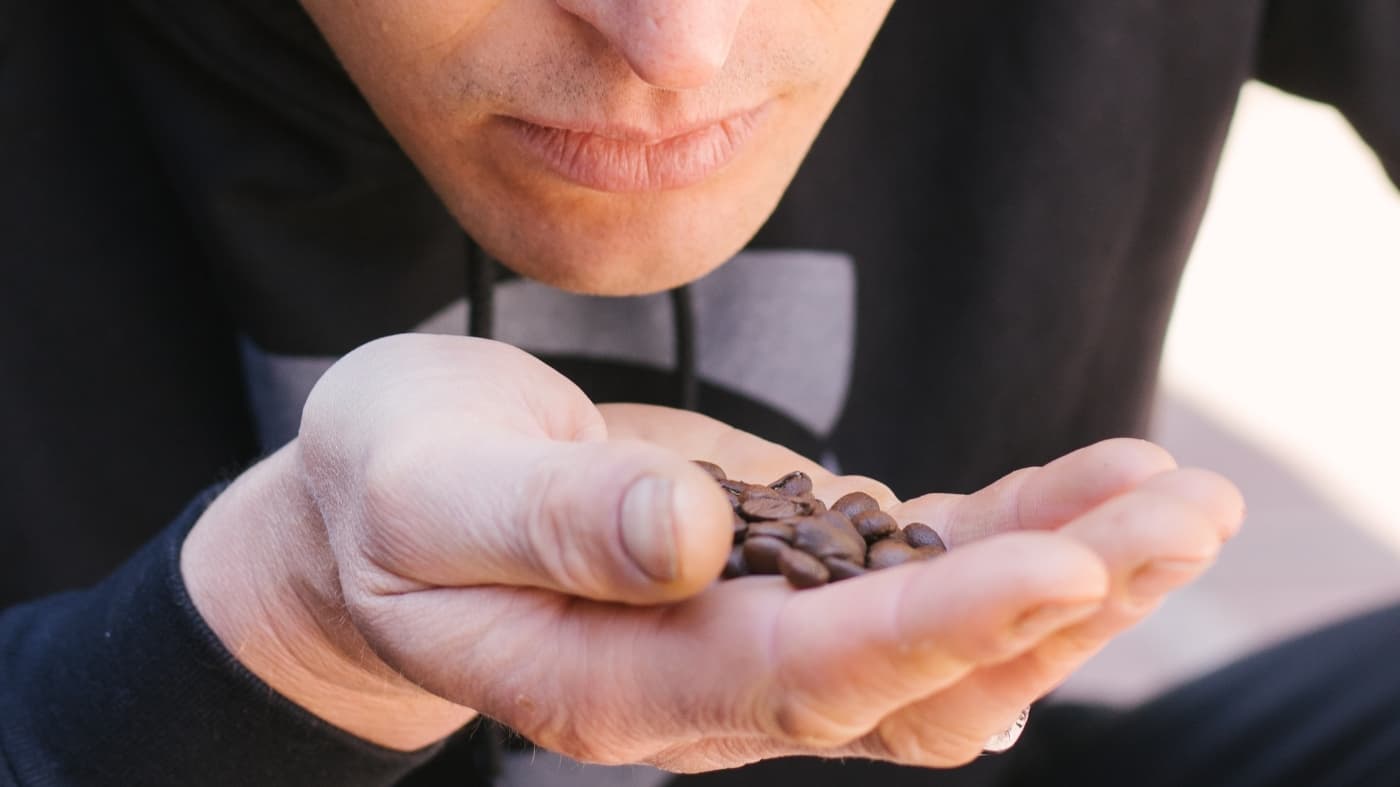


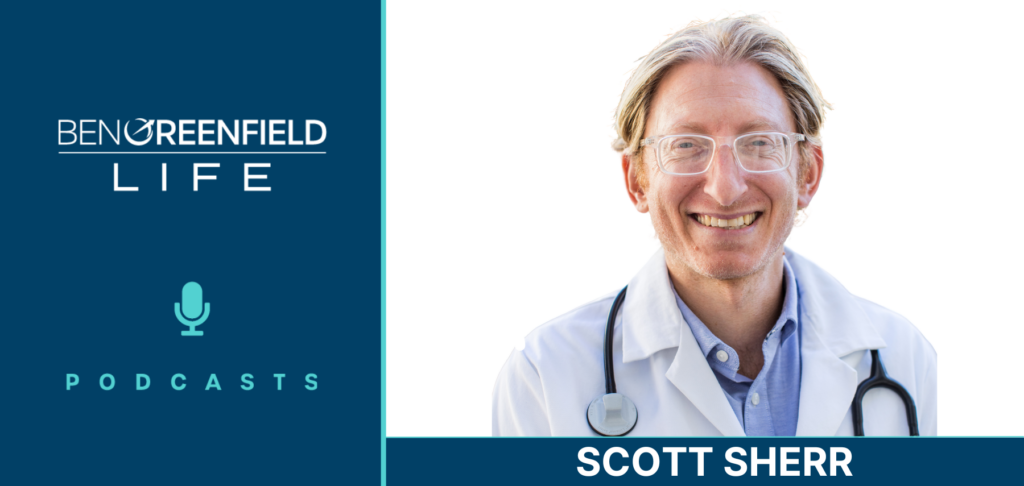
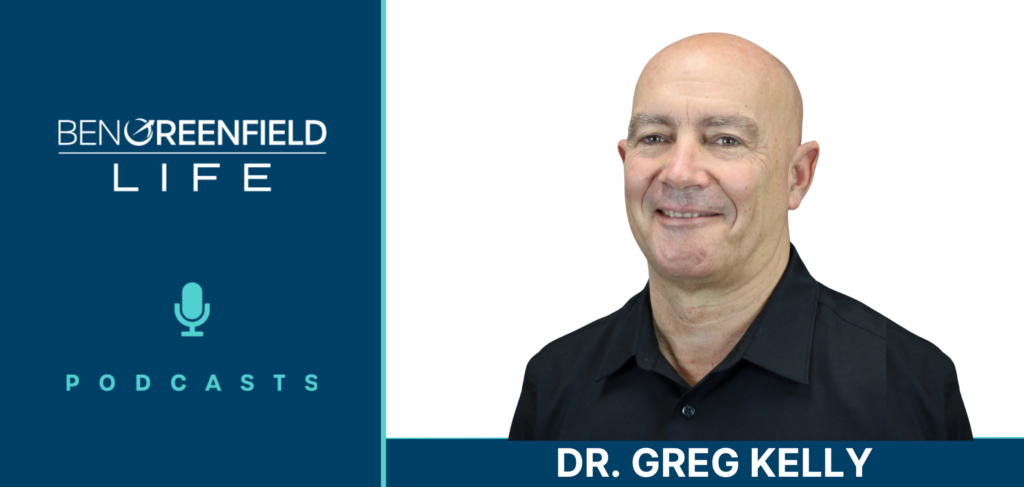


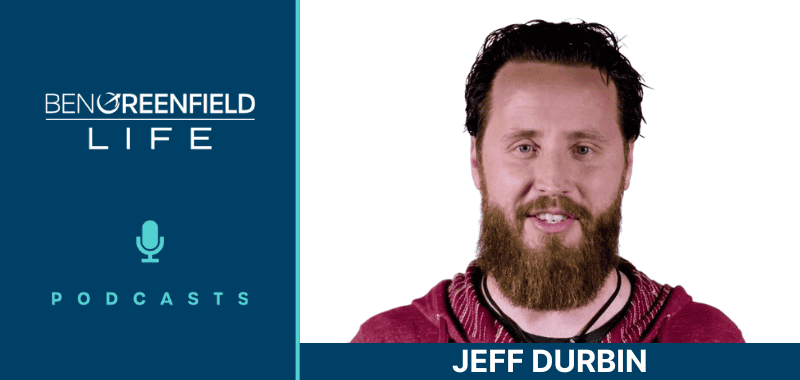

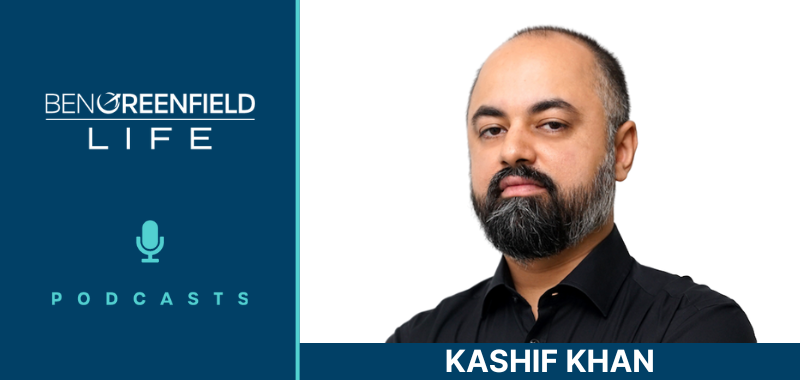
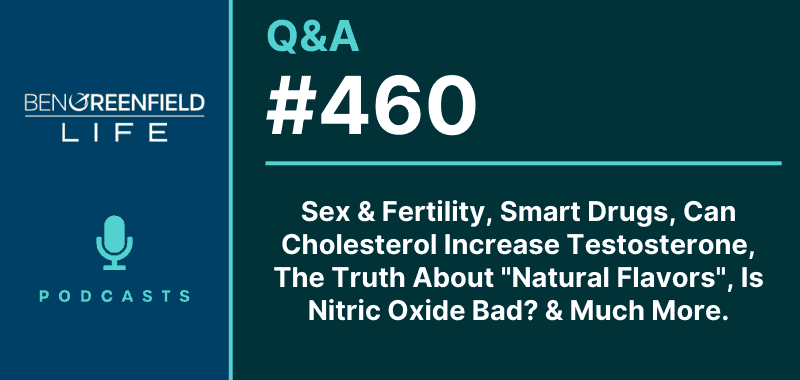

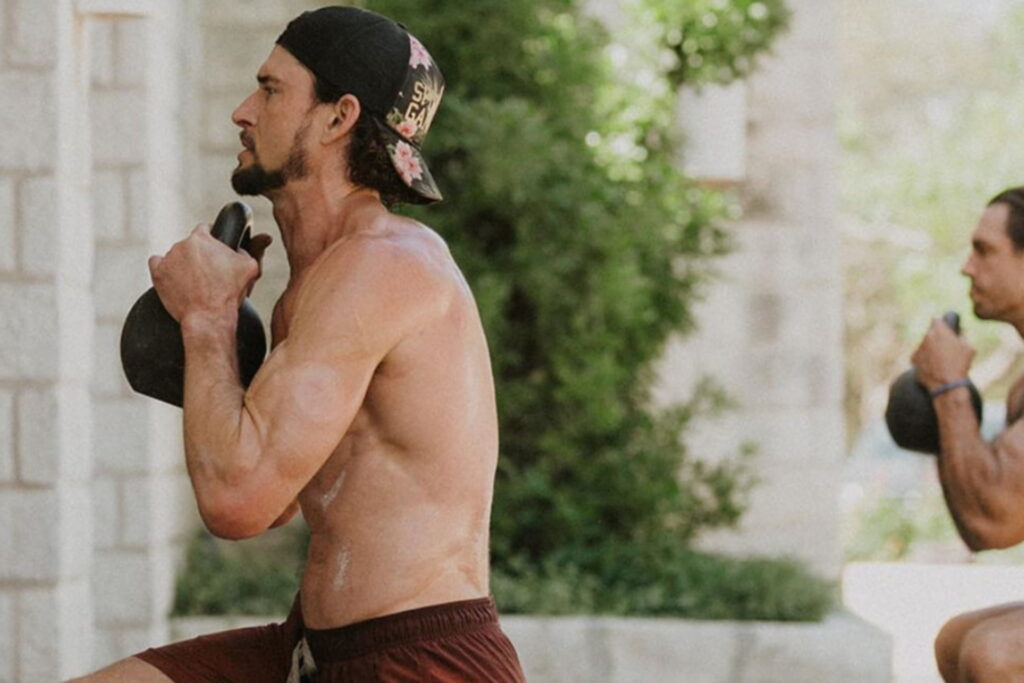
Any thoughts on CO2 decaffeination?
This is a really interesting post. I learned so much from it and am very glad you’re sharing your knowledge with us! Carry on doing what you do, because the guidance that has come along this journey will help me for sure!
Coffee can help people feel less tired and increase energy levels
Whether you’re cradling a travel mug on your way to work or dashing out after spin class to refuel with a skinny latte, it’s hard to imagine a day without it. The caffeine perks you up, and there’s something incredibly soothing about sipping a steaming cup of joe. But is drinking coffee good for you?
See, to a nerve cell, caffeine looks just like adenosine, but caffeine doesn’t slow down cellular activity like adenosine does. As a result, the nerve cell can no longer identify adenosine because caffeine is taking up all the receptors that adenosine would normally bind to.
I’d like to open soon because there aren’t any establishments like that in the area where I live. I can imagine that I would also need to work with a coffee delivery service in order to have other drinks to offer aside from cocktails.
Coffee is our one essential part of life love have a cup of coffee
Coffee is now a part of our lifes and now we are all addicted to it but who care i love to drink coffee every day
The previous few weeks I at last began to have the option to have long stretches of nice energy without it, and have figured out how awesome fundamental oils can be to help at work. I truly missed espresso the initial two months, however then as of late at last began to get comfortable and make the most of my body being on a less focused on advertised up state.
Love this!! What do you think about this amazing new weight loss supplement? https://bit.ly/37De7p3
Wow! That’s one complete article. You seem to have covered all the key points. I would like to add a few considerations. First, regarding people drinking too much coffee. Generally, that’s because they’re drinking bad coffee. I’ve found that if you drink top quality coffee, you’ll be satisfied and thus drink less coffee.
Secondly, regarding decaf coffee, SWP specifically, have you ever looked at those beans? After going through the decaf process the beans look deformed and frankly doesn’t even come close to the taste of top quality coffee. What does help SWP coffee to taste better is for the SWP decaf coffee to be a medium roast. SWP decaf doesn’t take well to over roasting. Thus, when looking for good quality decaf, look for a medium roast, i.e., medium brown.
Hey Ben, have you ever tried the custom keto diet plan??? This product allows some to create their very own keto diet plan that is based on the food preferences, daily activity, height, weight, and target weight goal. You will get an eight week meal plan created just for you so you can reach your goals, a nutrition plan, meals based on what you like, step by step instructions on how to make it, and more. I loved this product when I used it and I just know you will too. So if you are interested at all just click this link below!!
http://hmielewski.1keto.hop.clickbank.net/
It’s interesting to know that it takes a good amount of research in order to find a good kind of decaf coffee. I’ve been planning about a bar business that I’d like to open soon because there aren’t any establishments like that in the area where I live. I can imagine that I would also need to work with a coffee delivery services in order to have other drinks to offer aside from cocktails.
Hey Ben! I am a coffee lover and enjoyed reading your post. Thank you for sharing this amazing post about coffee. Keep sharing more!!
Thanks for sharing the amazing and very valuable article. I love coffee and take it daily. I buy my decaf coffee from this: https://homekitchenary.com/best-decaf-coffee/
Citing a recent study, this article says “strong black coffee consumed before breakfast substantially increased the blood glucose response to breakfast by around 50%”.
https://www.bath.ac.uk/announcements/drink-coffee-after-breakfast-not-before-for-better-metabolic-control/
I’m curious what Ben thinks.
Caffeine tolerance resets are a great idea. 10-14 days once per quarter is my sweet spot. In that time I switch to either: decaf (sparingly), herbal teas, homemade bone broth, or Chaga tea. After day 4 it’s smooth sailing, but like extended fasting, the psychological side of no coffee’s hardest.
Make sure not to overdo the decaf or cacao during the coffee reboot. Otherwise you’ll come back and feel the same pre-reset.
For a few more tips & tricks on successfully (temporarily) kicking caffeine, check out my recent post: https://outliyr.com/caffeine-reset-challenge
Very nicely narrated article. Caffeine really keeps our health up to the mark.
Hi Ben, I think you’ve said before that you drink cocoa/cacao when having breaks from caffeine. Is it not a good idea to break from chocolate at the same time as coffee, due to its interaction with adenosine receptors?
For a full 100% reset, yes. But cacao–especially the amount in tea–won’t ruin the effort.
Thanks for the reply, Nick.
Here’s another interesting decaf process:
“Three different approaches can be used for the extraction: organic solvents (dichloromethane or ethyl acetate), water, or carbon dioxide (CO2 in liquid or supercritical state).
Unlike the first two methods of decaffeination, which involve the elimination of caffeine, but also cause a loss in terms of taste, the use of carbon dioxide allows us to maintain the aromatic characteristics of the coffee unaltered. That’s why this method is the one Lavazza uses.
During the first phase of the process, the beans are moistened with steam and/or water until 30–50% of moisture is obtained. Then, they are placed in a gas extraction cylinder, with gas in “supercrytical” state: this occurs when the temperature and pressure are such that it features both the properties of a gas and those of a liquid. In this way it spreads like a gas with the solvent properties of a liquid, managing to extract the caffeine in a selective way. The carbon dioxide is then separated from the alkaloid using the water, re-pressurised and reused.
The cycle ends with the now-decaffeinated coffee being dried.”
https://www.lavazza.com.au/en_AU/magazine/coffee-…
Yes I was wondering about this because all the decafs we get in South Africa use this process and I was wondering what Ben thought of this method?
Hi Ben! Is it equally useful to just cycle for a day here and there throughout the month or does it take several days in a row to reset the adenosine receptors? For example, could I do three days on one day off and get the same results as atalong a week off per month
How do I order the kion- coffee?
I enjoy taking caffine breaks for the mental challenge of knowing I can enjoy the day without needing a substance.
With this I tend to take week or two every month with longer breaks in there as well.
My question is though the first days back after a break or if I use very sparingly after a break the physical side effects come at me hard with a very moderate dose of caffine. Jitters, cold hands and feet, etc.
Is there any tips for combating these or is it just a part of irregular caffine consumption?
Lower the dose even more? 🤷🏻♂️
Been doing a week off every month and it has been a game-changer. Every time you return it’s like the very first time. Instant energy and boost! Of course, I love the benefits so mixing in a high-quality decaf during these off weeks is a must. Also found that doing bone broth in its place is a nice change of pace as well.
I’ve been off coffee, tea and all caffeine most of the past 3 months after reading it’s not great for women’s fertility and wanting to protect mine right now. The past few weeks I finally started to be able to have days of decent energy without it, and have learned how wonderful essential oils can be to help at work. I really missed coffee the first two months, but then recently finally started to settle in and enjoy my body being on a less stressed hyped up state. The challenge remains if I’ve had a late night and have work to do (last night). Today I’ve resorted to organic dark chocolate, which has kicked in like an espresso!
Just super curious if you’ve seen any more good research and insights around women (early 40s, keen to still try for pregnancy, no other major fertility issues known), and whether coffee can/should be part of the mix or stayed off 100%.
Many of the women in the FB natural fertility groups who are getting pregnant at this age say they did go off caffeine. But I know you read lots of great scientific reports….and about coffee! So thanks if you see anything.
I haven’t taken a break from caffeine in years. 😳😳 Maybe it’s time, though even the thought is dreadful. 😬
Ben Thanks for the recap and the brief explanation, I am more a fan of cycling, so would a 2 week, 4 week, month off caffeine be the most effective? I am thinking one month on my favorite Sumatran, then a week off. As you know I am a shift worker and caffeine is a tool that can be effective.
Thanks to your coaching and podcast’s I have my sleep dialed in. But I do get a caffeine headache when I come off my last night-shift and abstain that day,
Jim McIntosh
I've found success with 1 week, so start there and see how it works for you.